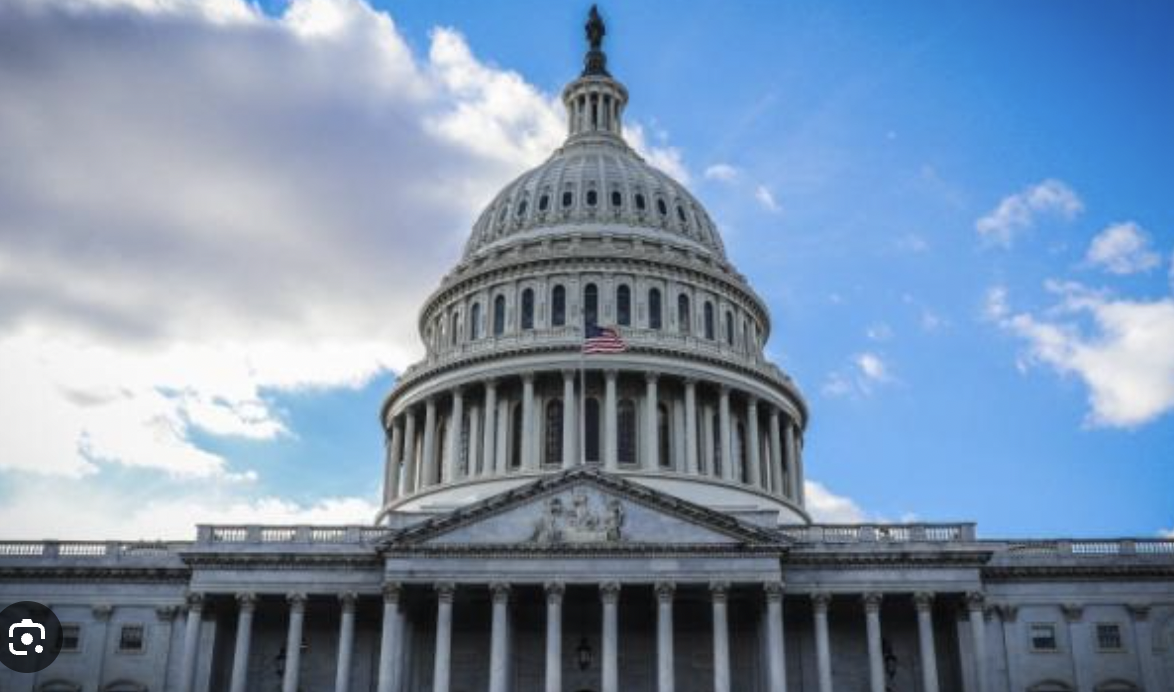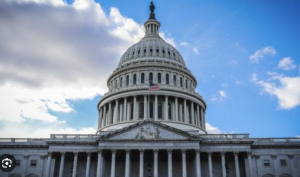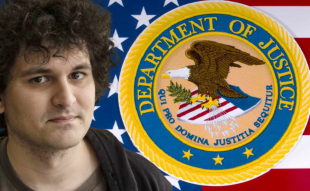Join Our Telegram channel to stay up to date on breaking news coverage
A new bill in the US Senate to regulate decentralized finance (DeFi) was slammed as ”messy,” ”unworkable,” and ”unconstitutional” by a crypto think tank.
The CANSEE Act was introduced by Senators Jack Reed (D-RI), Mike Rounds (R-SD), Mark Warner (D-VA), and Mitt Romney (R-UT) on Tuesday. It aims to address money laundering violations within the DeFi ecosystem and proposes extending new penalties to individuals or entities that “control” or “make available an application designed to facilitate transactions using a digital asset protocol.”
These entities would also be required to comply with anti-money laundering and financial reporting standards.
@coincenter claimed the US Senate DeFi bill violated the constitution, while the Blockchain Association deemed it incompatible with #blockchain technology.#Crypto #DeFi #Bills pic.twitter.com/qyxocWawcS
— Crypto Luster (@CryptoLstr) July 21, 2023
DeFi Bill Messy and Unconstitutional – Coin Center
Coin Center, a prominent crypto think tank, voiced its disapproval of the CANSEE bill in a blog post, calling it “messy” and “unconstitutional.” It also expressed concerns about the wide-ranging power granted to the Treasury Secretary and said it may lead to ambiguity and uncertainty for developers.
“The bill gives virtually unbounded discretion to the Secretary to decide what it would take to designate one as having ‘control’ of a protocol,” it said.
One of the main points of contention raised by Coin Center and the Blockchain Association revolves around the definition of who or what constitutes “controls” over a DeFi protocol.
The bill delegates the authority to make this determination solely to the U.S. Treasury Secretary. Critics fear that this could lead to excessive and arbitrary controls being imposed on the DeFi sector and the lack of clarity in this definition raises question about potential regulatory overreaches that could stifle innovation in the industry.
Moreover, the think tanks argue that the bill could be deemed unconstitutional. They believe it may infringe upon the First Amendment right of software developers to freely publish code, which they consider an extension of free speech. The bill would be unconstitutional legislation as it would clearly violate the First Amendment,” said Coin Center.
We've looked at the new bill by @SenJackReed, @SenatorRounds, @SenatorWarner,
and @SenatorRomney that would extend sanctions penalties and AML obligations to developers of decentralized protocols. It's unconstitutional and ill-considered. Our analysis: https://t.co/TR2rsAAQHK— Jerry Brito (@jerrybrito) July 20, 2023
DeFi, short for decentralized finance, is inherently designed to be “decentralized,” implying that there are no specific entities with absolute control over a particular protocol or service.
However, it’s worth noting that an April 7 U.S. Treasury report found that some DeFi protocols are more centralized than they claim, featuring a concentration of funds and voting power in the hands of a few token holders. This indicates that there may be instances where additional regulation and scrutiny are warranted.
The bill’s vague definition of “controls” could also inadvertently hamper decentralized software development, thus hampering innovation in the crypto space, Coin Center said
Blockchain Association CEO Kristin Smith criticized the legislation for overstating the prevalence of money laundering in DeFi and the broader cryptocurrency space.
“The Crypto-Asset National Security Enhancement Act of 2023, introduced today by Sen. Jack Reed (D-RI), is an unworkable solution and simply incompatible with digital asset technology,” she said.
Smith stated in a Twitter post that illicit transactions represent a minuscule fraction of the total volume, accounting for just 0.24% of all digital asset transactions in 2022, far less than in traditional finance.
Blockchain Association CEO @KMSmithDC released the following statement following today's introduction of the Crypto-Asset National Security Enhancement Act of 2023:
“The Crypto-Asset National Security Enhancement Act of 2023, introduced today by Sen. Jack Reed (D-RI), is an… pic.twitter.com/S65XSUheTW
— Blockchain Association (@BlockchainAssn) July 19, 2023
The association’s CEO emphasized that federal law enforcement agencies already possess the necessary tools and expertise to effectively combat this relatively small issue. Smith deemed the new punitive measures proposed in the bill as redundant and unnecessary.
DeFi Bill Needs Constructive Discussions
As the debate intensifies, it is crucial for lawmakers to engage with industry stakeholders and consider the concerns raised by advocacy groups like Coin Center and the Blockchain Association.
Finding a balanced approach to regulation that addresses legitimate concerns while fostering innovation is essential for the growth and success of the DeFi sector and the broader crypto industry.
While the fight against money laundering and illicit activities is vital, it should be done without unduly restricting free speech and hindering technological progress.
Constructive discussions and collaboration between regulators and industry participants will be key to striking the right balance in regulating the evolving DeFi landscape.
Related Articles
- 15 Best DeFi Coins to Buy in 2023 – Decentralized Finance Tokens
- New Deflationary Crypto Presale $KENNY Raises $300,000 Within Hours – 60% Sold Out
- U.K Government Rejects Lawmakers’ Proposal to Regulate Crypto Like Gambling
Best Wallet - Diversify Your Crypto Portfolio
- Easy to Use, Feature-Driven Crypto Wallet
- Get Early Access to Upcoming Token ICOs
- Multi-Chain, Multi-Wallet, Non-Custodial
- Now On App Store, Google Play
- Stake To Earn Native Token $BEST
- 250,000+ Monthly Active Users
Join Our Telegram channel to stay up to date on breaking news coverage


